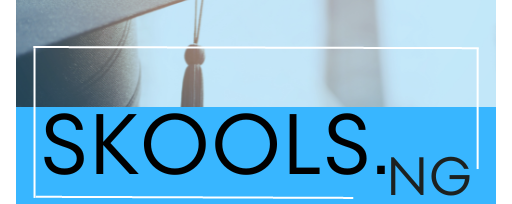Scholarship Alternatives For Funding of Studies

Scholarship Alternatives – Scholarships may not always be available, and education is expensive – but that don’t mean you should choose ignorance. Even when scholarships are available to ease the financial load somewhat, they frequently fall short of covering all costs. Due to the exorbitant expense of tuition, the dream of going to college is out of reach for a number of students.
However, there are some scholarship alternatives you can use to pay for your education. There are quite a number of ways/opportunities students can choose to fund their studies aside from scholarships. In this post, such opportunities/ways will be highlighted.
Scholarship Alternatives
Some possible scholarship alternatives include;
Crowdfunding Platforms
Crowdfunding is simply a way of raising money to finance projects, academics or businesses. It enables fundraisers to collect money from a large number of people via online platforms. The process usually entails collecting little or large amount money from a large number of individuals via some platforms o the internet.
Platforms like GoFundMe and YouCaring have been used by several students to raise money for their educational expenses. Crowdfunding has become increasingly popular in recent years, and it’s a great way to get people involved in helping you raise money for your education. These platforms allow you to create campaigns that explain your story and needs, and then you can share them with family, friends, and other potential donors online.
The more people that donate, the closer you will get to reach your goal. Platforms such as GoFundMe allow users to create customized campaigns with specific goals and timelines and manage donations received through secure payment processing systems. If you are looking to create a crowdfunding system for financing of your education, you need to remember that most crowdfunding sites will take a percentage of any amount donated as a fee.
Tuition Waivers
Some higher education institution will give up the right to charge a student’s tuition in exchange for a financial award known as a tuition waiver. The strength of a student’s application is a key factor in determining whether they will receive a tuition waiver. Sometimes a student’s status is affected by the fact that they are a former service member, a member of a minority, or fall under another privileged group. The majority of the time, tuition waivers are unconditional and can be either partial or whole. A full tuition waiver implies you don’t pay anything at all, whereas a partial waiver indicates your costs are reduced.
Side Gigs
Another excellent approach to make money for school expenditures is to take on a side job. Both online and offline, there are a ton of chances accessible, from online survey and babysitting jobs to freelance writing, graphic design and web design positions. There are quite a number of sites you can use to search for available gigs.
In order to keep things from getting too stressful, it’s critical to be aware of how much time you’ll need for studying and other obligations as well as how much income you’ll require. Working part-time can be advantageous if it gives you greater scheduling freedom so that it doesn’t conflict with your education or other obligations.
Subsidy
Government subsidies for higher education are generally provided, and they typically entail lower tuition charges at higher institutions that receive government funding. In order for students to pay the high costs of tuition, fees, housing, and board, these expenses are typically supported by the federal government.
Employer Assistance Programs
Many employers offer assistance programs which can help employees pay for their education costs by providing tuition reimbursement when certain requirements are met. For students to successfully juggle the demands of school, career, and home life, these programs often offer a variety of support services and tools.
Employers and educational institutions frequently provide student EAPs as a component of comprehensive benefit packages. These programs’ main objectives are to support students in their academic and professional endeavors and to get them ready for the difficulties and requirements of the workplace.
Numerous firms provide assistance programs that, upon fulfillment of specified criteria, repay employees for part of their tuition fees. Ask about this option if you currently have a job or know someone who does, as it may be a good method to considerably lower your educational costs. Some employers go so far as to pay for employees’ tuition up front so they don’t have to wait until they graduate or meet certain standards before receiving their money back.
Also Read:
- Pierre Elliott Trudeau Foundation Doctoral Scholarships
- Common Scholarship Scams And How To Avoid Them
- Top 5 Scholarship Destinations for Immigrants
- Top 10 Scholarships in Germany for Immigrants
Sponsorship
Through sponsorships, you can pay for your education in yet another inventive way. Similar to crowdfunding, sponsorships entail locating companies or groups who might be ready to pay for your education in exchange for certain goods or services. You can directly contact neighborhood establishments, alumni groups, or even larger corporations that might be willing to support students in exchange for advertising space or access to young talent. Check to see if there are sponsorship possibilities in your region because this is a terrific method for businesses looking for new talent and for students looking for additional financing sources.
Work-Study Programs
Another excellent option for paying for your school without using loans or scholarships is to participate in work-study programs. These programs enable students to maintain full-time enrollment in their classes while working a part-time job. Work-Study Programs can provide students with valuable work experience, as well as an opportunity to earn money while pursuing their education.
Some schools may offer Work-Study opportunities in fields related to the student’s major, which can help them gain relevant experience and build their resume. It’s important to note that Work-Study Programs are not guaranteed and funding is limited, so students should apply for financial aid as early as possible to increase their chances of receiving a Work-Study award.
The positions often only pay the federal minimum wage, they are flexible enough for students to work around their class schedules and still have time for extracurricular activities and study. Work-study programs offer a terrific method to make money in addition to useful experience that can advance one’s career after graduation.
Government Programs
Outside scholarships, some countries government offer other form of financial aid for students. For instance, the initiatives run by the Canadian government can assist in financing your education. An example of such initiative is the Canada Student Grant Program that offers financial aid to post-secondary students, both full-time and part-time, who require it.
Additionally, qualifying full-time and part-time post-secondary students who are unable to cover all of their tuition expenses through savings or part-time employment can apply for loans and grants through the Canada Student Loan Program. Before applying, be sure to understand the precise qualifying requirements for both programs.
Employment Insurance (EI)
Yes, this is also another way of funding your studies. Employment Insurance may be available to you if you are fired from your job or lose it for no fault of your own (EI). If that applies to you, you might be able to use your EI benefits to continue your education while still getting paid by the program. Check with Service Canada for more details on what is eligible for EI assistance for higher education purposes as there are some regulations that also apply.
